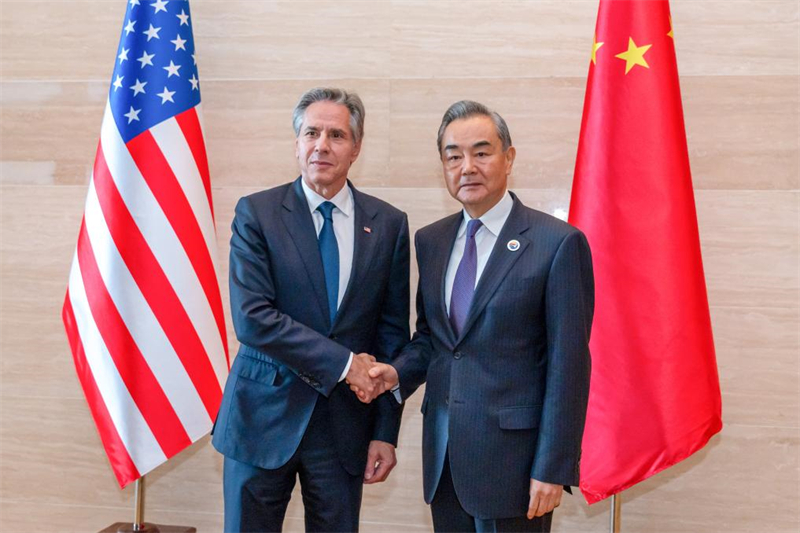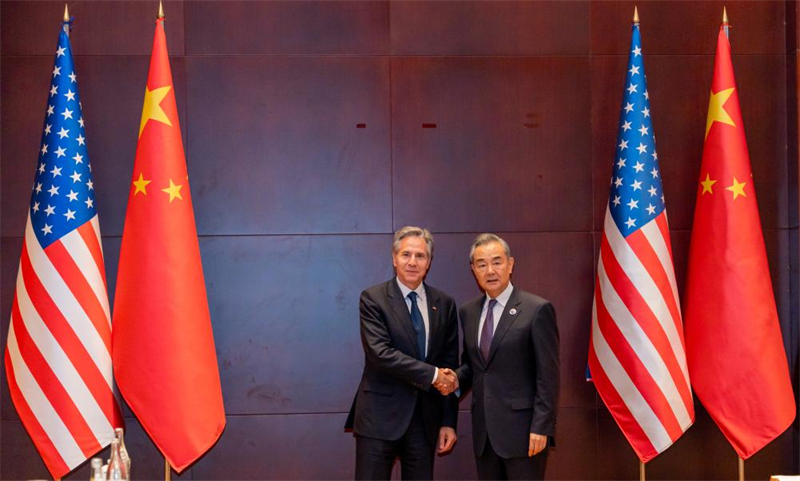
VIENTIANE, July 27 -- Chinese Foreign Minister Wang Yi and U.S. Secretary of State Antony Blinken met here on Saturday to exchange views on bilateral relations, agreeing to maintain communication at all levels and further implement the important common understandings reached at the San Francisco meeting last November between the two heads of state.
During his meeting with Blinken, Wang, also a member of the Political Bureau of the Communist Party of China (CPC) Central Committee, said that in the past three months, the diplomatic, financial, law enforcement and climate teams of the two sides as well as the two militaries have maintained communication, along with increased people-to-people exchanges. However, it must be pointed out that the U.S. side did not refrain from moving to contain and suppress China, but to go even further.
China-U.S. relations are still faced with accumulating risks and challenges and remain at a critical juncture of deescalation and stabilization, demanding efforts to recalibrate the direction, manage risks, properly address differences, remove disturbances and advance cooperation, Wang said.
He noted that China's policy towards the United States has been consistent, adhering to the principles of mutual respect, peaceful coexistence and win-win cooperation. The U.S. side should earnestly implement President Joe Biden's commitments and return to a rational and pragmatic China policy, Wang said, while calling on the two sides to work together to promote a stable, healthy and sustainable bilateral relationship.
Wang pointed out that the United States holds a wrong perception of China and always mirrors China with its own hegemonic logic. China does not seek hegemony or practice power politics, and as a major country, it has the best record on peace and security in the world, Wang said.
The Chinese foreign minister expressed hope that the U.S. side can better understand China, which is a nation focused on pursuing happiness for its people and its rejuvenation, and committed to the path of peaceful development and building a community with a shared future for mankind.
Taiwan is part of China and has not been and will never be a country, Wang noted. "Taiwan independence" runs counter to cross-Strait peace, he said, adding that every provocation made by the "Taiwan independence" forces will be met with countermeasures to reduce the space for "Taiwan independence", in favor of working toward the goal of complete unification.
Wang elaborated on the ins and outs of the Ren'ai Jiao issue, noting that China has reached a provisional arrangement with the Philippines on managing the situation. The Philippine side should keep its word and stop shipping any more construction materials, Wang said while urging the United States not to move to fan the flames and stir up trouble, undermining the stability in the South China Sea.
China's position on the Ukraine issue is fair and transparent, and it will continue to promote peace talks, said the Chinese minister, calling on the United States to stop abusing unilateral sanctions and long-arm jurisdiction. China rejects false accusations and will not succumb to pressure or blackmail. It will take resolute measures to protect its major interests and legitimate rights, Wang noted.
During the meeting, Blinken said that the United States is strongly committed to stabilizing US-China relations, and continues to follow the one-China policy.
The United States looks forward to maintaining regular communication with China and continuing cooperation in areas including counternarcotics and artificial intelligence, said Blinken.
The United States would like to manage differences between the two sides and avoid misunderstanding and miscalculation, he said.
The two sides also exchanged views on the situation concerning Gaza and the Korean Peninsula, and the question of Myanmar, among other matters.
